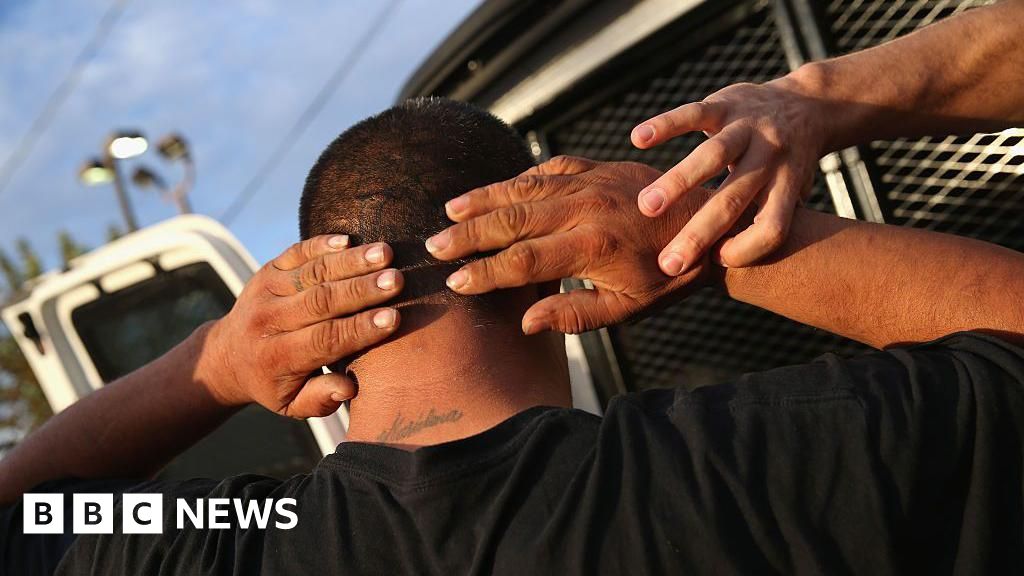ARTICLE AD BOX
Image source, Boston Globe
Image caption,Bombs were planted bombs near the finish line of the 2013 Boston Marathon
The US Supreme Court has re-imposed the death sentence for convicted Boston marathon bomber Dzhokhar Tsarnaev, reversing an earlier appeals court ruling to void it.
Justices voted 6-3 to reject defence claims Tsarnaev's 2015 trial was conducted improperly.
Three people died and 260 others were wounded in the 2013 bombing, which Tsarnaev carried out with his older brother Tamerlan.
Tamerlan was shot dead by police.
In July 2020, a federal appeals court 'vacated' (removed) Tsarnaev's death sentence, arguing the judge in his original trial had failed to question potential jurors about how much they'd been following the case in the news.
Additionally, the appeals court said the judge should have allowed the defence team to bring up a 2011 triple murder in a Boston suburb.
Tsarnaev's lawyers had hoped to use the crime as evidence that he had been manipulated by his brother who had been a suspect in the case, and who they characterised as the mastermind of the bombing.
While the court upheld his conviction, his death sentence was overturned. The Supreme Court's decision on Friday reverses that decision.
"Dzhokhar Tsarnaev committed heinous crimes," Justice Clarence Thomas wrote. "The sixth amendment nonetheless guaranteed him a fair trial before an impartial jury. He received one."
The Supreme Court's six conservative justices were the majority, with the remaining three liberal judges dissenting.
No federal executions were carried out in the US for a 17-year period before the administration of former President Donald Trump. A total of 13 federal executions took place during the Trump administration.
In July last year, Attorney General Merrick Garland imposed a moratorium on federal executions to allow the Justice Department to review the death penalty.
Earlier this year, White House Press Secretary Jen Psaki said the administration had "grave concerns about whether capital punishment, as currently implemented, is consistent with the values that are fundamental to our sense of justice and fairness".
The Biden administration's Justice Department, however, defended the death sentence for Tsarnaev, and Mr Garland's moratorium did not prevent prosecutors from continuing to seek capital punishment in the case.

 2 years ago
19
2 years ago
19








 English (US)
English (US)